Related Research Articles
Mahātmā is an honorific used in India.

Sarojini Naidu was an Indian political activist and poet. A proponent of civil rights, women's emancipation, and anti-imperialistic ideas, she was an important person in India's struggle for independence from colonial rule. Naidu's work as a poet earned her the sobriquet 'the Nightingale of India', or 'Bharat Kokila' by Mahatma Gandhi because of colour, imagery and lyrical quality of her poetry.
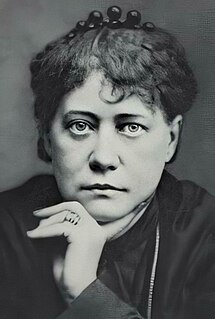
Helena Petrovna Blavatsky was a Russian mystic and author who co-founded the Theosophical Society in 1875. She gained an international following as the leading theoretician of Theosophy.

William Quan Judge was an Irish-American mystic, esotericist, and occultist, and one of the founders of the original Theosophical Society. He was born in Dublin, Ireland. When he was 13 years old, his family emigrated to the United States. He became a naturalized citizen of the USA at age 21 and passed the New York state bar exam, specializing in commercial law.
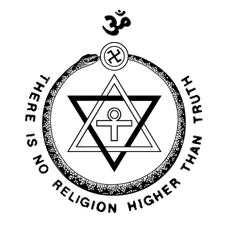
The Theosophical Society, founded in 1875, is a worldwide body with the aim to advance the ideas of Theosophy in continuation of previous Theosophists, especially the Greek and Alexandrian Neo-Platonic philosophers dating back to 3rd century CE. It also encompasses wider religious philosophies like Vedānta, Mahāyāna Buddhism, Qabbalah, and Sufism. The Theosophical Society functions as a bridge between East and West, emphasizing the commonality of human culture.

Annie Besant was a British socialist, theosophist, women's rights activist, writer, orator, political party member, educationist, and philanthropist. Regarded as a champion of human freedom, she was an ardent supporter of both Irish and Indian self-rule. She was also a prolific author with over three hundred books and pamphlets to her credit. As an educationist, her contributions included being one of the founders of the Banaras Hindu University. For fifteen years, Besant was a public proponent in England of atheism and scientific materialism. Besant's goal was to provide employment, better living conditions, and proper education for the poor.
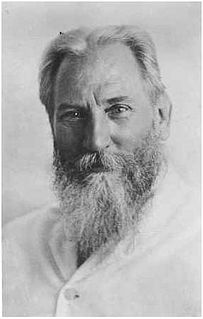
Charles Webster Leadbeater was a member of the Theosophical Society, Co-Freemasonry, author on occult subjects and co-initiator with J. I. Wedgwood of the Liberal Catholic Church.

The Indian Home Rule movement was a movement in British India on the lines of the Irish Home Rule movement and other home rule movements. The movement lasted around two years between 1916–1918 and is believed to have set the stage for the independence movement under the leadership of Annie Besant and Bal Gangadhar Tilak to the educated English speaking upper class Indians. In 1920 All India Home Rule League changed its name to Swarajya Sabha.

Morya is one of the "Masters of the Ancient Wisdom" within modern Theosophical beliefs. He is believed to be one of the Mahatmas who inspired the founding of the Theosophical Society and was engaged in a correspondence with two English Theosophists living in India, A. P. Sinnett and A. O. Hume. The correspondence was published in 1923 by A. Trevor Barker, in the book The Mahatma Letters to A. P. Sinnett.

The Light of Asia, or The Great Renunciation (Mahâbhinishkramana), is a book by Sir Edwin Arnold. The first edition of the book was published in London in July 1879.

Curuppumullage Jinarajadasa was a Sri Lankan Sinhalese author, occultist, freemason and theosophist. The fourth president of the Theosophical Society, Jinarajadasa was one of the world's foremost Theosophical authors, having published more than 50 books and more than 1600 articles in periodicals during his life. His interests and writings included religion, philosophy, literature, art, science and occult chemistry. He was also a rare linguist, who had the ability to work in many European languages.

Report of the committee appointed to investigate phenomena connected with the Theosophical Society, commonly called the Hodgson Report was an 1885 report by the Society for Psychical Research (SPR) on Helena Blavatsky and purportedly apported Mahatma Letters.
The Blavatsky Lodge was an English Theosophical Society. The complete name is The Blavatsky Lodge of the Theosophical Society.

The Coulomb Affair was a conflict between Emma and Alexis Coulomb, on one side, and Helena Blavatsky and the Theosophical Society, on the other.

Dakshina Bharat Hindi Prachar Sabha is an organisation whose main goal is to improve Hindi literacy among the non-Hindi speaking people of South India. The headquarters are located at Thanikachalam Road, T. Nagar, Chennai.
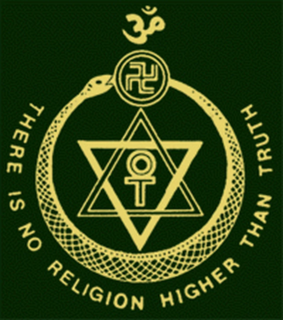
Theosophy is a religion established in the United States during the late 19th century. It was founded primarily by the Russian born American Helena Blavatsky and draws its teachings predominantly from Blavatsky's writings. Categorized by scholars of religion as both a new religious movement and as part of the occultist stream of Western esotericism, it draws upon both older European philosophies such as Neoplatonism and Asian religions such as Hinduism and Buddhism.
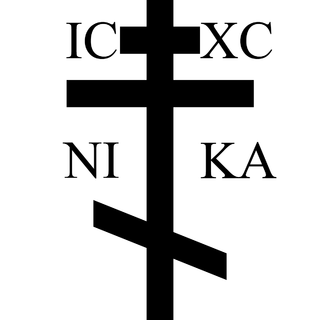
Christianity and Theosophy, for more than a hundred years, have had a "complex and sometimes troubled" relationship. The Christian faith was the native religion of the great majority of Western Theosophists, but many came to Theosophy through a process of opposition to Christianity. According to professor Robert S. Ellwood, "the whole matter has been a divisive issue within Theosophy."
New India was an early 20th century daily newspaper published in India by Annie Besant, to highlight issues related to the Indian freedom struggle.
According to some literary and religious studies scholars, modern Theosophy had a certain influence on contemporary literature, particularly in forms of genre fiction such as fantasy and science fiction. Researchers claim that Theosophy has significantly influenced the Irish literary renaissance of the late 19th and early 20th centuries, notably in such figures as W. B. Yeats and G. W. Russell.
Josephine Maria Ransom, née Davies (1879-1960) was an Australian Theosophist and writer. She served as General Secretary of three different national sections of the Theosophical Society, and wrote A Short History of the Theosophical Society. Ransom was also Honorary Secretary of the Britain and India Association, and editor of its magazine Britain and India.
References
- ↑ "Gertrude L. Marvin".
- 1 2 "Gertrude Williams, Writer And Educator, Dies at 89". The New York Times.
- ↑ Robbins, Frances Lamont. (February 11, 1931). The Passionate Pilgrim, by Gertrude L. Marvin Williams. The Outlook . pp. 229–230
- ↑ Porter, Alan. (March 1931). The Passionate Pilgrim: A Life of Annie Besant by Gertrude Marvin Williams. The Bookman . pp. 88–89
- ↑ Bates, Ernest Sutherland. (April 18, 1931). Reformer and Theosophist. The Saturday Review . pp. 745–746
- ↑ Redman, Ben Ray. (December 1946). Twelve Success Stories. The American Mercury . pp. 749–756
- ↑ Roberts, Mary-Carter. (1946). "Reviewing the New Books". Evening Star. p. 2
- ↑ Dupée, Jeffrey N. (2008). Traveling India in the Age of Gandhi. University Press of America. pp. 15–16. ISBN 0-7618-3949-6
- ↑ Batchelder, Charles. (January 26, 1929). A Journalist's View: Understanding India by Gertrude Marvin Williams. The Saturday Review . p. 626
- ↑ Gandhi, Mahatma. (1970). Collected Works of Mahatma Gandhi. Publications Division, Ministry of Information and Broadcasting, Government of India p. 398